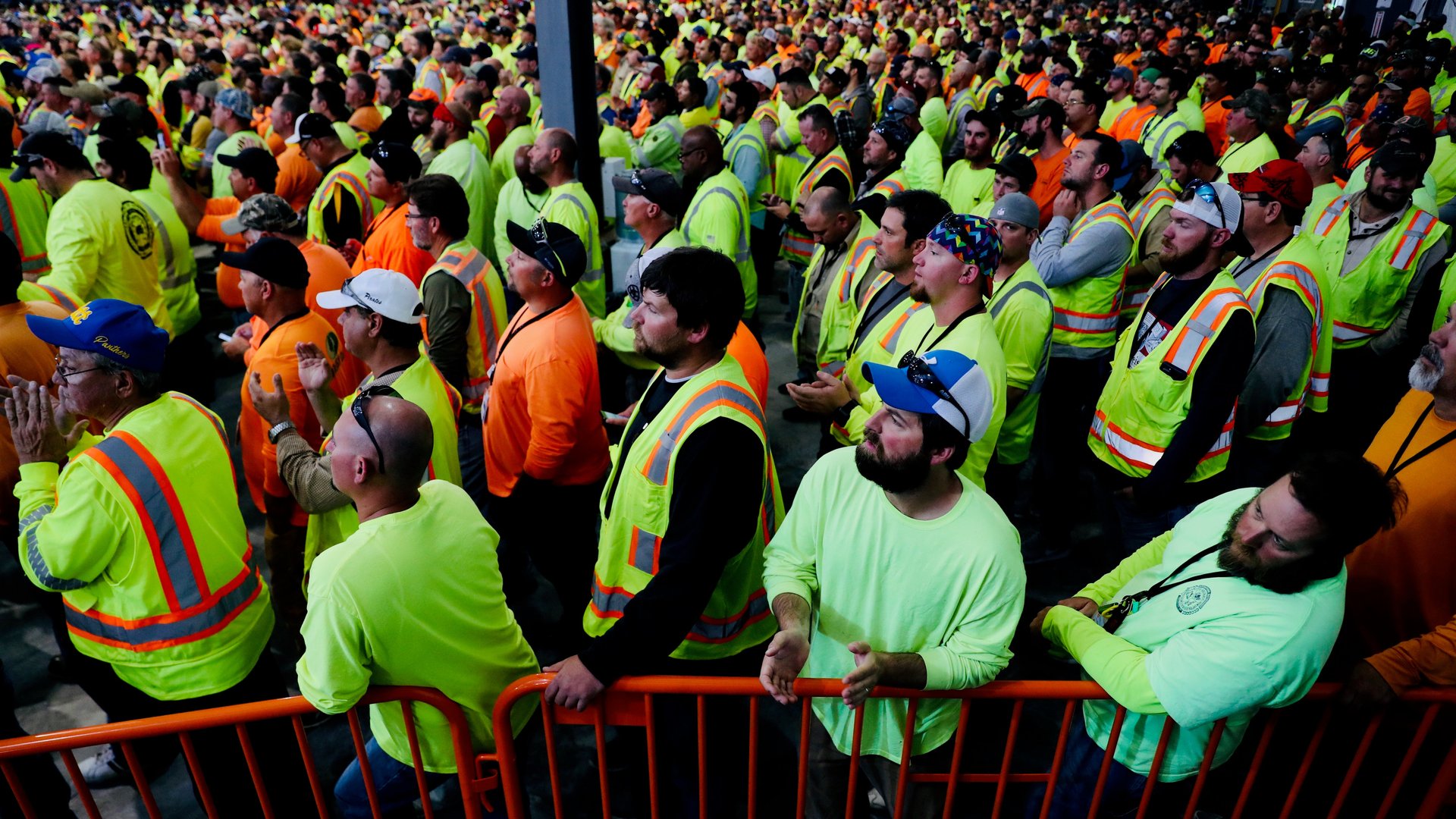Workers at Shell’s Trump event had to attend or lose pay
On Aug. 13, US president Donald Trump visited the Shell Pennsylvania Petrochemicals Complex in Monaca, Pennsylvania and seemed to be well-received by workers. Now, it appears that one reason for this may have been the fact that employees were told to show up and get paid or stay home and forfeit a day’s worth of salary, which would also mean working without overtime later in the week.


On Aug. 13, US president Donald Trump visited the Shell Pennsylvania Petrochemicals Complex in Monaca, Pennsylvania and seemed to be well-received by workers. Now, it appears that one reason for this may have been the fact that employees were told to show up and get paid or stay home and forfeit a day’s worth of salary, which would also mean working without overtime later in the week.
The conditions imposed on workers ahead of Trump’s visit were first reported by the Pittsburgh Post-Gazette yesterday. The publication notes that no worker was forced to attend the gathering with the president, but those who did not show up risked losing up to $700 in cash and benefits.
The employees at the site have a 56-hour workweek, with 16 hours of overtime built in, according to Shell spokesman Ray Fisher. Those who attended the Trump event on Tuesday and worked all week met the overtime threshold, earning time-and-a-half on Friday. Those who didn’t see the president were paid their regular rate on Friday. Neither group—not the attendees or the abstainers—actually worked on the Tuesday that Trump visited, however.
“This was treated as a paid training day with a guest speaker who happened to be the president,” Fisher explained. He said that before Trump arrived, workers engaged in “safety training and other activities.” The Shell spokesperson also noted that the plant has halted for other important guests as well, not just the president. “It’s not uncommon for us to shut down the site for quarterly visits from VIPs—popular sports figures like Rocky Bleier and Franco Harris have visited the site to engage with workers and to share inspirational messages. Shell/Penske NASCAR driver Joey Logano was another guest at the site.”
The workers are employed by companies that contract with Shell to provide labor at the plant, not by the petroleum company itself, and belong to various unions. Chiefs of the unions say that Shell informed them of the conditions and requested that they be passed on to workers.
“This is just what Shell wanted to do and we went along with it,” Ken Broadbent, business manager for Steamfitters local 449, told the Pittsburgh Post-Gazette. He said he would not “bad rap about it one way or another,” adding, “We’re glad to have the jobs. We’re glad to have the project built. The president is the president whether we like him or dislike him. We respect him for the title.” Some union authorities, however, complained that they were not consulted in advance.
It also appears that workers were warned to keep cool when the president was present. One Shell contractor who had to convey the instructions to his workers said that he was told to advise the following about the event: “No yelling, shouting, protesting or anything viewed as resistance will be tolerated at the event. An underlying theme of the event is to promote good will from the unions. Your building trades leaders and jobs stewards have agreed to this.”
If the president’s audience on Tuesday seemed especially large, attentive, and receptive, now we know one reason why. It may also explain why no one corrected the president when he claimed to be the reason the plant exists, even though plans for it were initiated during the Obama administration.